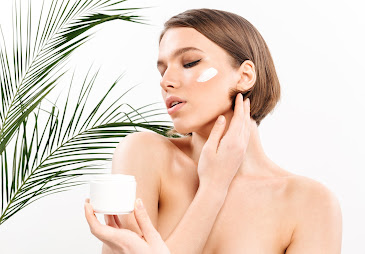The Role of Sleep in Your Skin’s Health?
The Role of Sleep in Your Skin’s Health: Why Beauty Sleep Matters
Sleep is essential not only for your overall health but also for your skin. Getting adequate rest allows your body to repair and regenerate, and your skin is no exception. Sleep and your skin share a powerful connection, as sleep directly impacts skin health, appearance, and aging. In this article, we’ll explore how sleep affects your skin, what happens to your skin while you sleep, and why beauty sleep is not just a myth but a vital part of skincare.
Why is it Called Beauty Sleep?
During sleep, your body goes into repair and recovery mode, including skin regeneration. This is when your skin gets a chance to repair damage caused by environmental factors like UV rays, pollution, and stress.
What Happens to Your Skin While You Sleep?
While you’re asleep, your body is busy at work. This includes the production of collagen, the protein that keeps your skin firm, plump, and youthful. Skin cells regenerate during sleep, and any damage, such as fine lines, dark spots, or irritation, is repaired. Furthermore, the skin’s barrier function is strengthened during this time, helping to retain moisture and prevent dehydration.
Your skin is also less likely to experience inflammation while you sleep, making it an ideal time for skin repair.
Sleep vs No Sleep: The Impact on Your Skin
Have you ever wondered does lack of sleep make your skin darker or cause other issues? The answer is yes. Lack of sleep can lead to several skin problems. When you don't get enough rest, your body produces higher levels of cortisol, the stress hormone. Elevated cortisol can cause inflammation and break down collagen, resulting in dull, uneven skin tone, fine lines, and even acne. In addition to these effects, poor sleep can make dark circles under your eyes more prominent and cause your skin to appear tired and lackluster.
Conversely, a proper beauty sleep time period gives your body time to repair and rejuvenate, resulting in a smoother, brighter, and more youthful complexion.
How Many Hours to Sleep for Glowing Skin?
You may be wondering, how many hours to sleep for glowing skin? Experts recommend getting 7-9 hours of sleep each night to achieve optimal skin health. This allows enough time for your skin to undergo its natural repair process. Studies have shown that when you consistently get the right amount of sleep, you can enjoy brighter, more hydrated skin and a smoother complexion.
Inadequate sleep, on the other hand, can lead to visible signs of aging, such as dull skin, fine lines, and uneven texture. Ensuring that you get enough rest is one of the simplest yet most effective ways to maintain healthy, glowing skin.
Benefits of Sleep for Skin
The benefits of sleep for skin are numerous. When you rest, your skin produces more human growth hormone (HGH), which helps in tissue repair, cell regeneration, and overall skin renewal. This promotes the healing of blemishes and the restoration of skin elasticity. Additionally, sleep helps balance your skin’s moisture levels, reducing the likelihood of dryness or oily patches.
Getting adequate sleep also improves blood flow to the skin, which helps to deliver vital nutrients to your skin cells. As a result, your skin looks fresher, firmer, and rejuvenated.
What Does Your Skin Do for Class 3?
In biology, it's important to understand how the skin functions during sleep. For Class 3 students, it's essential to know that the skin is not just a protective barrier; it also plays a key role in regulating body temperature, hydration, and even immunity.
Sleep and Skin Health: What You Need to Know
Sleep and skin health go hand in hand. Adequate sleep not only prevents premature aging but also helps maintain your skin’s natural radiance. When you sleep, your skin is able to focus on regeneration instead of battling the daily stresses from environmental pollutants, UV exposure, or makeup. As a result, skin looks clearer, smoother, and more youthful after a good night’s sleep.
Beauty Sleep Tips
To maximize the benefits of sleep for your skin, consider these beauty sleep tips:
- Establish a Sleep Routine: Try to go to bed and wake up at the same time every day to regulate your sleep cycle.
- Use Night Creams: Invest in a nourishing night cream or serum that helps repair and hydrate your skin while you sleep.
- Sleep on Your Back: Sleeping on your back reduces the chances of developing wrinkles and pressure marks on your face.
- Avoid Screen Time: Avoid looking at your phone or computer screen right before bed, as the blue light can interfere with your sleep quality.
How Does Sleep Help Your Skin?
As discussed, sleep helps your skin by promoting regeneration, boosting collagen production, and allowing your body to repair damage. In addition, sleep helps to reduce inflammation, improve hydration, and balance oil production. It’s during the deep stages of sleep that your body releases growth hormones, which contribute to the healing process and skin renewal.





Comments
Post a Comment